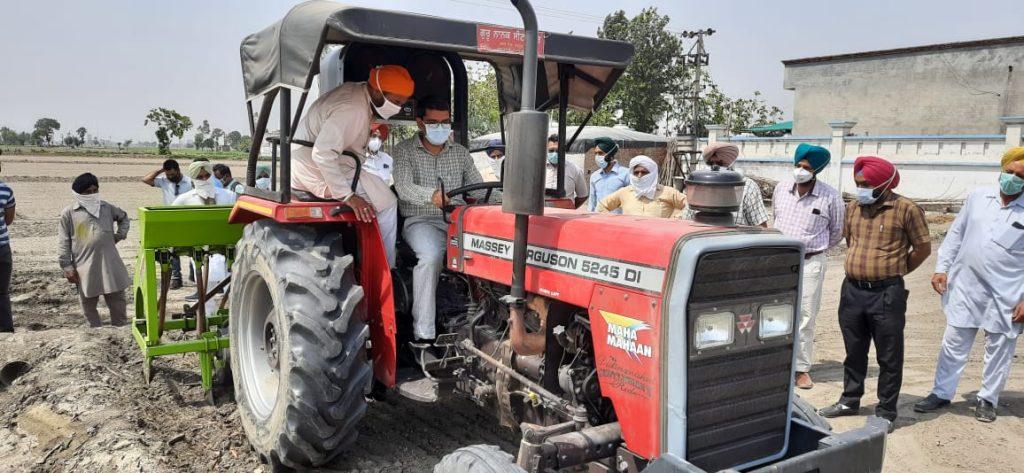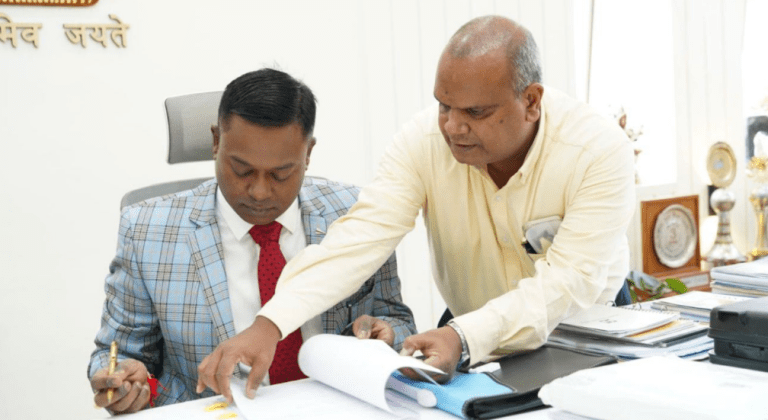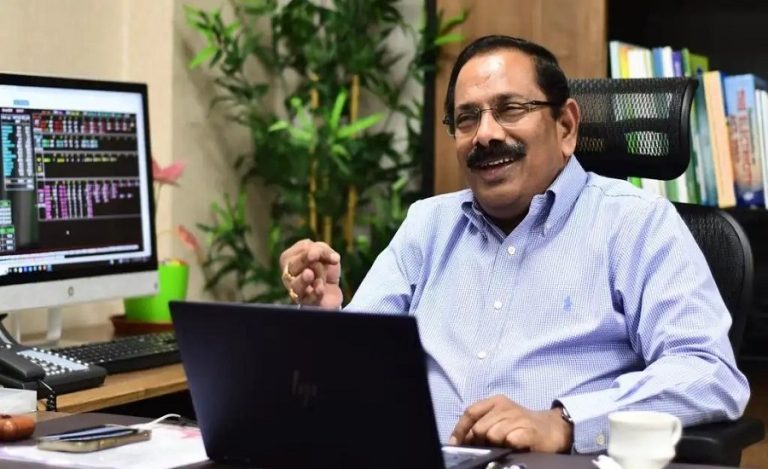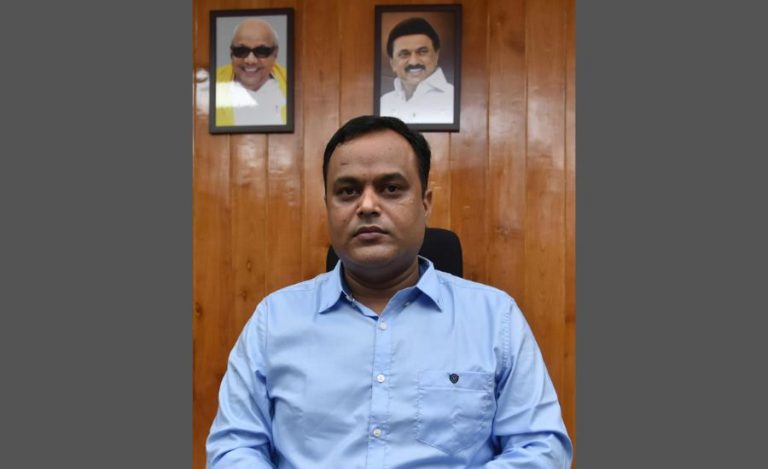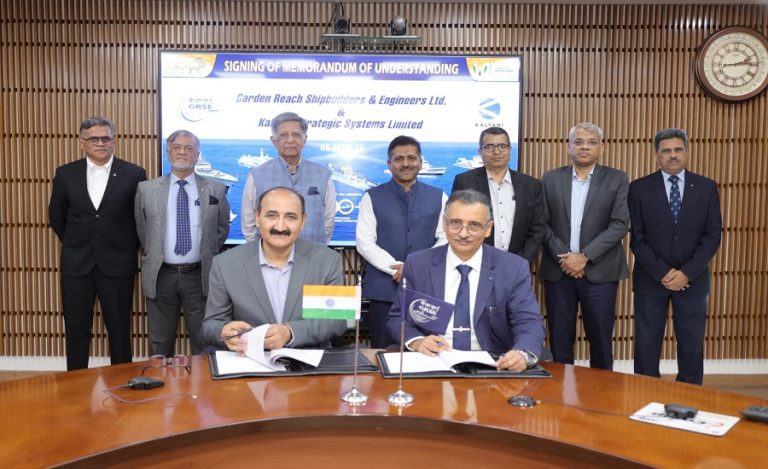With a cotton cloth shielding his face from sunlight and a daati (kind of farming tool) in hand, a man can be seen tending the soil in the Deputy Commissioner’s residence in Sangrur district of Punjab. At first glance, people may size him up as a caretaker of sorts, but no – he is the Deputy Commissioner himself.
This is not a daily ritual, but whenever he finds time, he steps into the field to reconnect with the soil. For him, it is a way of embracing his cultural roots and staying grounded despite worldly success.
The officer in focus is the DC of Sangrur, Punjab, Mr. Ramvir Singh, who serves as a fine example of someone who remains connected to his roots despite achieving professional success. Speaking to Indian Masterminds, he said, “People can reach great heights by becoming successful in life, but one can preserve heritage and ensure its continuity only by staying connected to the roots they come from.”
NOT FORGETTING HIS ROOTS
Mr. Ramvir Singh was born in Jhajjar district of Haryana. He came up from a farmer’s family where his father used to work in a government job. Later after retirement, his father continued doing farming activities with the rest of the family.
Mr. Singh said, “While growing up during my school days and childhood I used to support my family in farming activities and used to take out time to help them in every way possible.”

Mr. Singh was a brilliant student from an early age, emerging as the school topper in Class VIII under the Haryana Board. He went on to complete his graduation with Honours and a Master’s degree in Political Science from Jawaharlal Nehru University, New Delhi. He also earned an MPhil in Security Studies before entering the civil services in 2007.
He first cleared the UPSC examination in 2007, securing a position in the Indian Revenue Service (IRS). Determined to pursue his larger goal, he reappeared for the examination in 2009 and successfully secured a place in the Indian Administrative Service (IAS). He was subsequently allotted the Punjab cadre.
A FARMER BY HEART
Visitors to the official residence of the DC, Sangrur, are often surprised to see the officer working in the fields like a farmer. Mr. Ramvir Singh’s daily routine begins with yoga, followed by half an hour of farming, which he continues again in the evening after returning from office. During this time, he engages in harvesting wheat, cutting grass, milking cows, and checking on the crops he has planted at his residence.
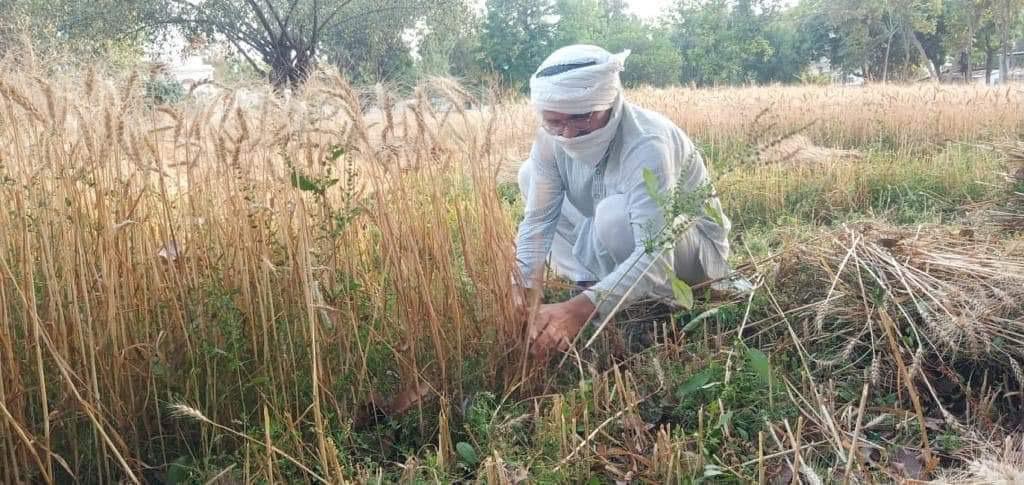
Mr. Singh said, “I have a keen interest in farming. Seeing people like the Chief Minister and several senior officers engage in farming activities motivates me to stay connected to my roots. Punjab and Haryana are agriculture-based economies, and in our day-to-day work we deal with many agriculture-related issues and try to improve upon them. Besides, it also sends a message to the youth who, while busy building their future, often forget their motherland.”
Mr. Singh is also setting an example by cultivating wheat through organic farming — a practice being undertaken for the first time at the Deputy Commissioner’s residence in Sangrur.
AGRICULTURAL INITIATIVES
During his previous postings, Mr. Singh took several proactive initiatives to promote dairy farming. In his current role, he is guiding farmers on techniques that help conserve water and reduce overall cultivation costs.

At a programme organised by the Agriculture Department on the occasion of Farm Day, Mr. Singh strongly advocated the adoption of the Direct Seeding of Rice (DSR) technique for paddy cultivation, noting that it can significantly save water and lower input expenses. To raise awareness about modern farming methods, he even drove a tractor himself to demonstrate the direct sowing technique.
He stated that while direct sowing can save 15 to 20 percent of water, it also reduces the cost of paddy cultivation by approximately ₹2,500 to ₹3,000 per acre.
In an era where success often distances people from their roots, Mr. Singh stands as a rare example of balance. By blending administrative leadership with hands-on farming, he sends a powerful message — that true progress lies not in forgetting where we come from, but in nurturing it.

